EMS News



The Maryland Department of Health (MDH) has made it easier for families on Medicaid to access mental health services in schools for their children. The expansion allows local education agencies to offer certain behavioral health services to all students enrolled in Medicaid. Previously, Medicaid payment for these services was limited to Medicaid-enrolled students who have an approved Individualized Education Program (IEP) or Individualized Family Ser-
vice Plan (IFSP).
Maryland Medicaid covers over 650,000 children in Maryland – almost one in two children in the state. The updated policy now allows all Maryland public K-12 schools to bill Medicaid for children enrolled in the program that receive diagnostic evaluations, individual therapy, family therapy, and group therapy. These services are provided by licensed school psychologists and school social workers. Licensed school psychologists are
a new Medicaid provider type under this expansion.
“This expansion is a step forward in addressing the mental health needs of Maryland’s students,” said Maryland Secretary of Health Dr. Laura Herrera Scott. “We’re breaking down barriers to mental health care and making sure that every student has access to the support they need to succeed in and out of the classroom.”
See Children page 12
This year marks the 125th anniversary of Midland Fire Company No. 1's service to the people of Allegany County, Maryland.

MIEMSS honored Midland's vision, dedication, and commitment to providing stateof-the-art emergency medical services to the residents and visitors of its Western Maryland community on January 25, 2025. MIEMSS Regions I & II Coordinator Wayne Tiemersma, NRP, (pictured, at left) presented a special certificate of recognition, accepted on behalf of Midland Fire Co. No. 1 by Chief Todd Thrasher. n
As of March 6, 2025, a total of 222 measles cases were reported by 12 states: Alaska, California, Florida, Georgia, Kentucky, New Jersey, New Mexico, New York, Pennsylvania, Rhode Island, Texas, and Washington. The Centers for Disease Control reports that there have been three outbreaks – defined as three or more related cases – in 2025, and 93% are outbreak-associated. Most of these cases were among children and adolescents who had not received a measlescontaining vaccine (MMR or MMRV), even if age-eligible. For more information, visit https://miemss.org/home/infectious-diseases n
March
n 28: Deadline: 2025 Maryland Stars of Life and Right Care When It Counts Awards Nominations.
April
n 29: Maryland Highway Safety Summit. Hilton Baltimore BWI Hotel, Linthicum Heights, MD.
n 30: Deadline: MIEMSS Region I EMS Hall of Fame Nominations
May
n 15–16: Point/Counterpoint XLII. Baltimore, MD.
n 18–24: National EMS Week
n 27–30: Maryland Emergency Management Association Symposium 2025. Ocean City, MD.
June
n 1: Maryland Fire-Rescue Services Memorial Induction. Annapolis, MD.
n 14–19: 133rd Maryland State Firefighters Association Annual Convention and Conference. Ocean City, MD.
n University of Maryland Team Tests Drone Delivery of Medications to Remote Residents at Moment's Notice (WBAL-TV). A University of Maryland team is testing the delivery of medications via drones to people when traditional methods aren't available. The team is flying prescription medications to residents of remote areas like Smith Island, which lies 10 miles west of Crisfield on the Eastern Shore and is home to just 200 people — many of whom are older and homebound. Read more: https://www. wbaltv.com/article/drone-medicinedelivery-tests-umd-uroc/63920696 n Maryland EMS Seminar Celebrates 2 Decades of Delivering Continuing Education to First Responders (EMS1). This month, the multi-disciplinary Miltenberger Emergency Services Seminar, held in Western Maryland, celebrates 20 years of bringing continuing education to clinicians, firefighters, registered nurses, and emergency com-
munication specialists. Read more: https://www.ems1.com/ems-trainingand-education/md-ems-seminar-celebrates-2-decades-of-delivering-continuing-education-to-first-responders n Maryland Department of Emergency Management Names Statewide Interoperability Coordinator (MDEM). The Maryland Department of Emergency Management has appointed John Edward (Jack) Markey as Maryland's Statewide Interoperability Coordinator. In his new role, Markey will lead strategic planning efforts for statewide interoperable voice and data communications, oversee the implementation of the Statewide Communications Interoperability Plan, and advocate for consensus funding priorities recommended by the State Interoperability Executive Committee. Read more: https://news.maryland. gov/mdem/2025/02/28/maryland-department-of-emergency-managementnames-statewide-interoperability-coordinator/ n
By Emily Paterson, MPH, CHES® Maryland Poison Center
Since 1962, National Poison Prevention Week has been celebrated across the country by presidential decree during the third full week of March. This year, National Poison Prevention Week is observed March 16-22. The theme this year is “When the unexpected happens, we’re here for you 24/7.”
The Maryland Poison Center (MPC) is a 24-hour telephone service that offers free, fast, and confidential expert advice about poisonings and overdoses. It has provided poisoning treatment advice, education, and prevention services to individuals living across the state of Maryland since 1972, and is certified by the American Association of Poison Control Centers (AAPCC) as a regional Poison Center.
Each year, over 2 million human exposures are reported to the nation’s 55 Poison Centers. The MPC managed 30,000 of those human exposure cases in 2024. A majority of these cases could have been avoided. Although approximately one-third of the calls received by the MPC involve children younger than 6-years-old, teens, adults, and older adults are also at risk for poisoning.
Although Poison Center education and poison prevention efforts happen 365 days a year, National Poison Prevention Week is a time to raise awareness about the dangers of poisonings and highlight the steps everyone can take to prevent them.
Join the MPC in using this week to encourage the public to take steps to prevent poisonings and to be prepared if a poisoning occurs: n Program the Poison Center phone
number in your mobile phone. Your local Poison Center can be reached anywhere in the United States by dialing 1-800-222-1222.
n Store poisons up, away, and out of sight.
n Read and follow directions on the label before using medicines and household products.
n Keep all household products and medicines in their original labeled containers. Never put chemicals or cleaning products in empty food or
drink containers.
Visit the MPC’s website at mdpoison.com for more information regarding National Poison Prevention Week and find information on ordering educational materials and accessing downloadable information. Up-to-date information and poison prevention tips can also be found on the MPC’s social media accounts: Facebook (@MarylandPoisonCenter), X (@MDPoisonCtr), and Instagram (@MDPoisonCenter). n
By Emily Paterson and Elizabeth Milwee Maryland Poison Center
The Maryland poison Center has seen a rise in poisoning exposures involving cannabis products, particularly edibles. Many of these cases involve:
n Pediatric exposures – Children accidentally consuming cannabis products.
n Therapeutic errors – Individuals taking more than the recommended dosage.
n Adverse effects – Unintended reactions to cannabis products. As cannabis products become more commonly found in households, it is essential to understand the risks and take precautions to keep families safe.
In Maryland, regulated dispensaries must follow strict guidelines
for packaging, product appearance, and dosage limits. Edible cannabis products sold through licensed dispensaries must be in geometric shapes and cannot resemble candy or other well-recognized food products. However, cannabis products purchased from unregulated shops or purchased online often resemble common food items, increasing the risk of accidental consumption. They also can contain higher levels of cannabis, leading to more severe effects. Additionally, Delta-8-THC and cannabidiol (CBD) products are unregulated and can cause symptoms similar to Delta-9-THC exposure.
Cannabis affects children differently than it does adults. Symptoms to watch for include:
n Difficulty walking or sitting up.
n Excessive sleepiness or drowsiness.
See Cannabis page 12
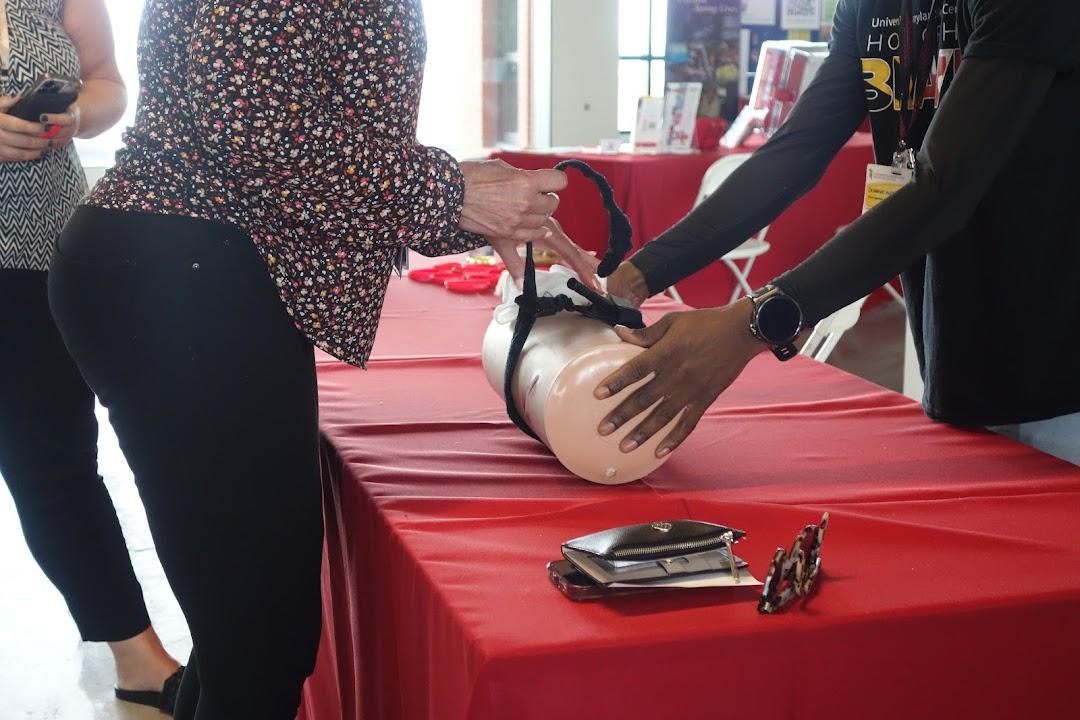
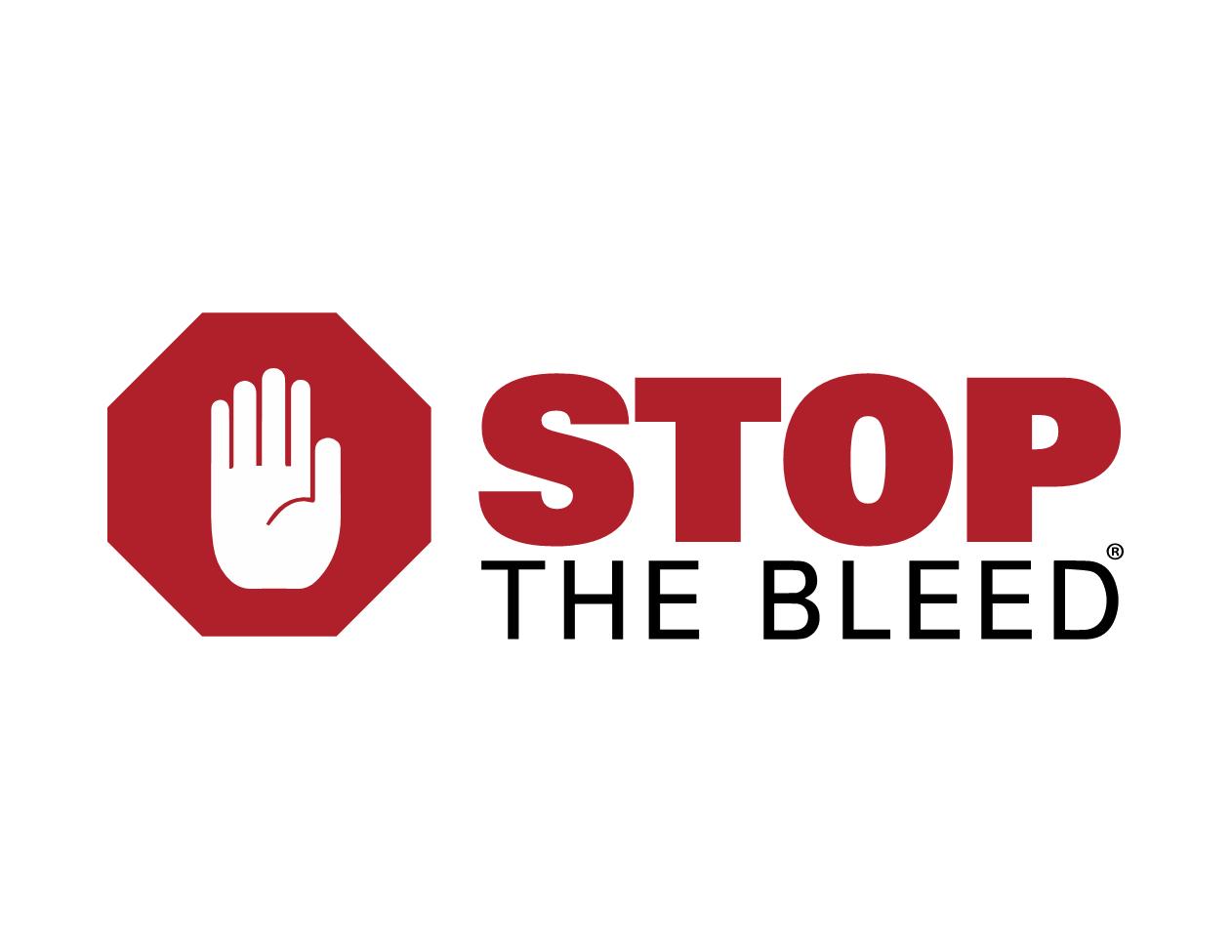
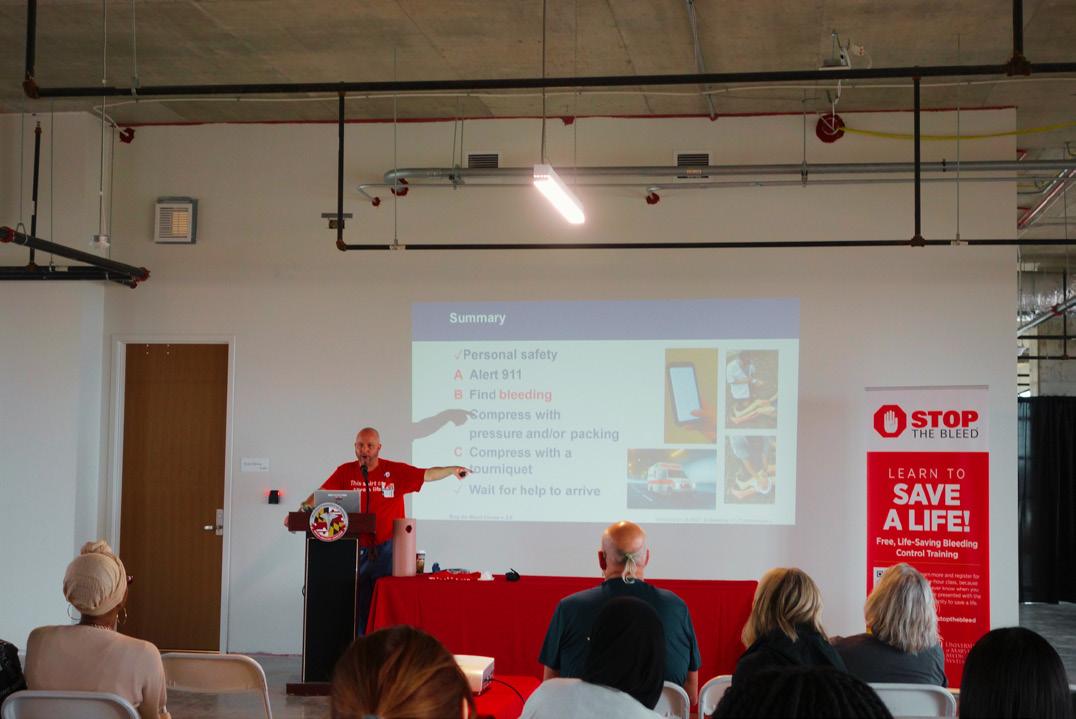

Location: UM Capital Region Medical Cente Largo, MD
Tuesday, May 20 at 10am, 12pm:
Location: Hebron Fire Hall Hebron, MD

Thursday, May 22 at 8am*, 10am, 12pm*, 2pm, 4pm*, 6pm:
Location: Maryland State Police Aviation Command at Martin State Airport Baltimore, MD
Friday, May 23 at 9am*, 11am*, 1pm, 3pm:
Location: Meritus Medical Center Hagerstown, MD

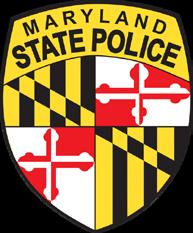


March 7 – 8, 2025 | Rocky Gap Casino & Resort | Flintstone, MD
Successful outcomes in any type of incident depend upon strong, cooperative relationships between public safety and healthcare clinicians. The Miltenberger Emergency Services Seminar fosters connection between the fields of EMS, Nursing, Fire, and Dispatch through serving the unque continuing education needs of prehospital clinicians, nurses, and other emergency services personnel across Western Maryland and throughout the surrounding region. The 20th Miltenberger Emergency Services Seminar included a variety of pre-seminar workshops, as well as a keynote presentation by trauma survivor William Tipper Thomas, III, who drew upon his own experience to discuss such issues as mental health, trauma-informed care, disability awareness, race relations, and violence prevention. n
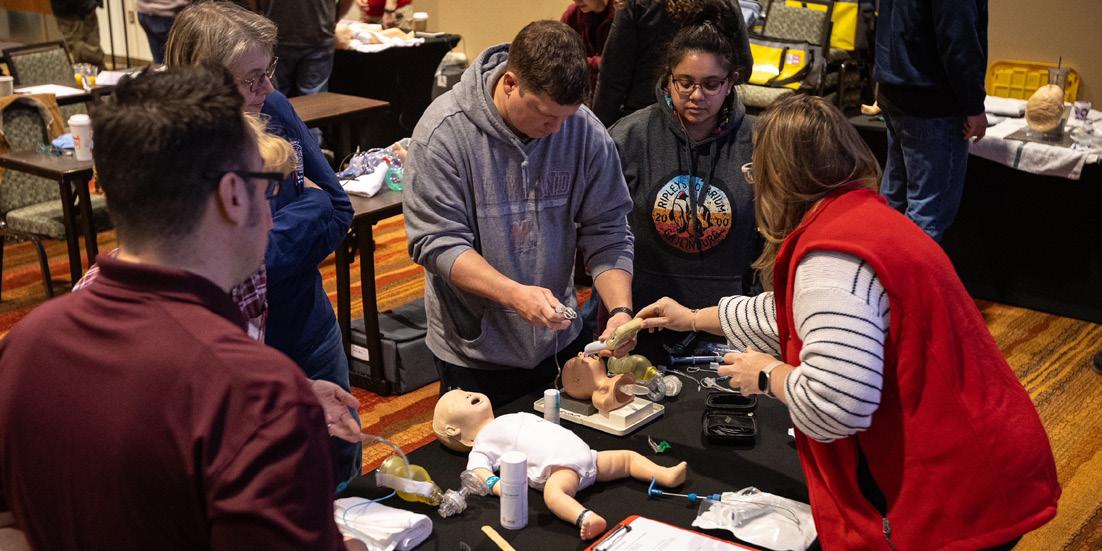
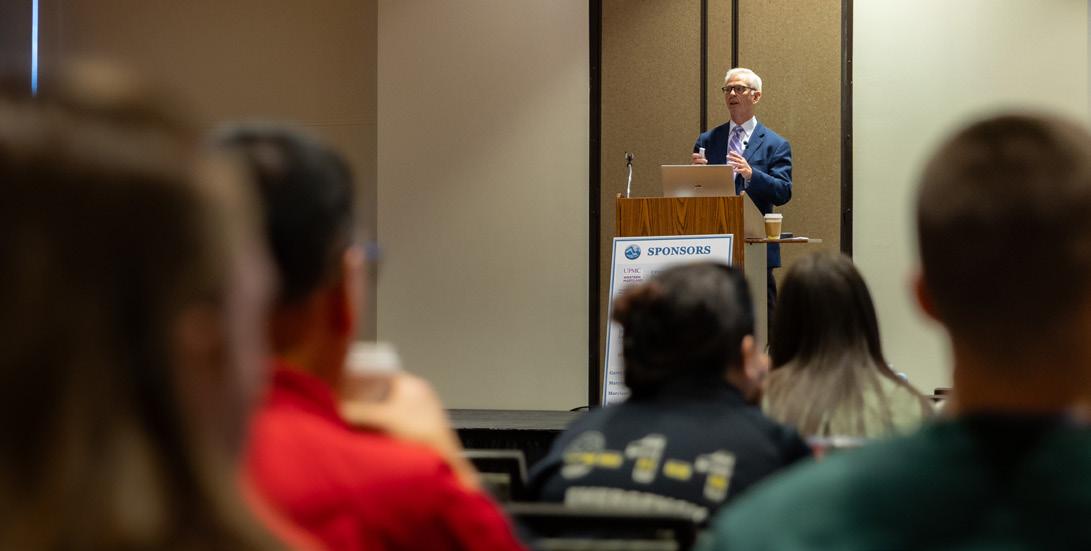
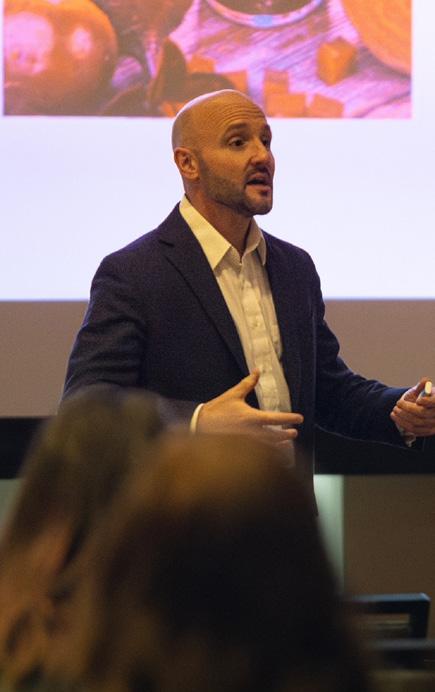

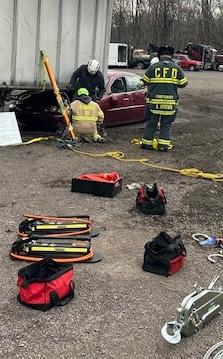


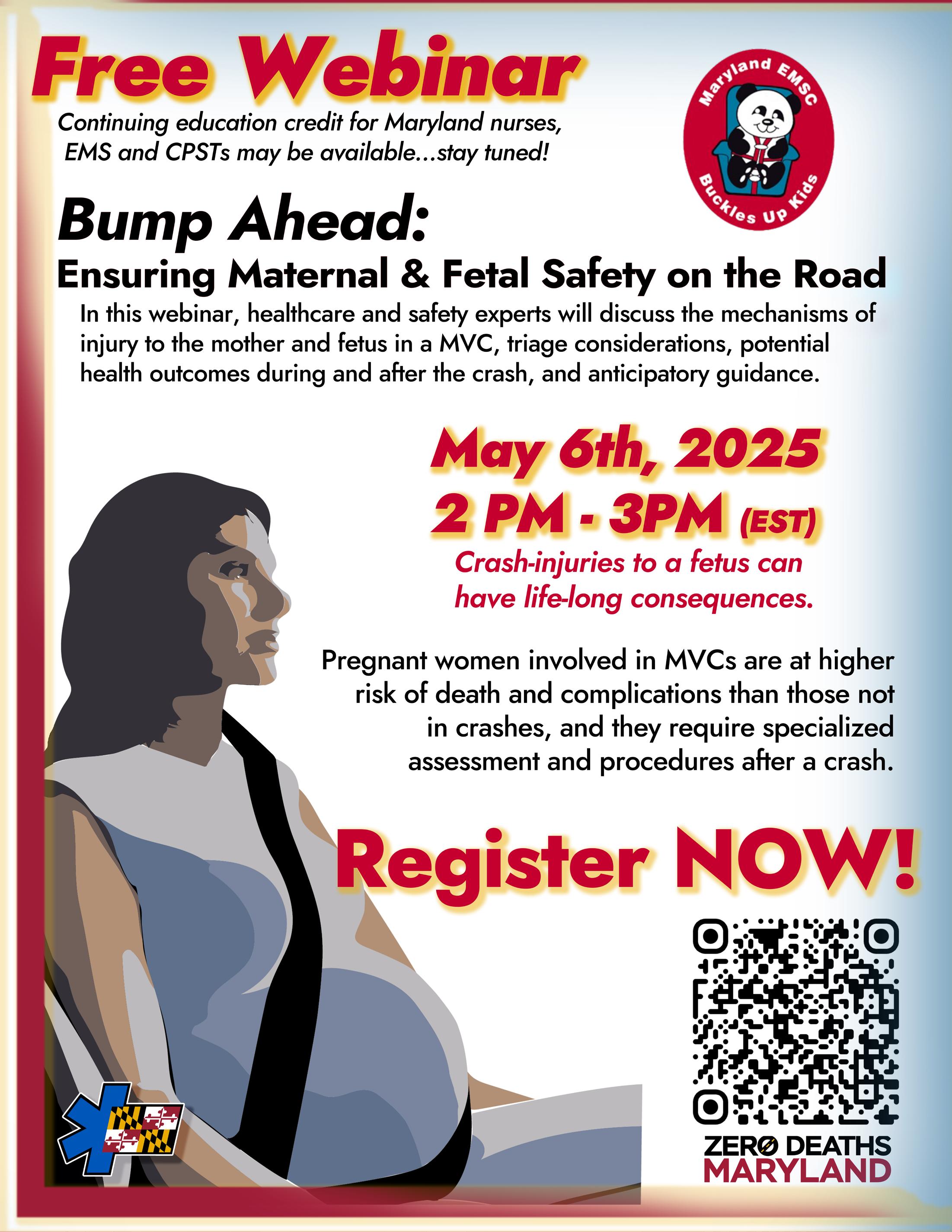

Want to help your agency or community by preventing injuries due to motor vehicle crashes? Consider becoming a Child Passenger Safety Technician (CPST)!
As a CPST, you could:
n check safety seats for proper use with children
n educate and help caregivers install their child safety seats
n provide community education and training on child passenger safety; and n attend free periodic update course and training opportunities.
CPST certification courses combine classroom instruction and handson work with car seats and vehicles, culminating in a community safety seat check-up event. These courses, which include open-book quizzes and skills tests, confer CPST status for a period of two years. The cost to register is $95.
CPST Courses for 2025
n Harford County. April 26, 27; May 3, 4
n Charles County. May 8, 12, 14, 15
n Allegany County. May 29, June 2,3,4
n Frederick County. July 16, 17, 23, 24
n Queen Anne's County. August 19, 20, 21, 22, 23
n Carroll County. September 2, 4, 5, 8
n Baltimore County. September 15, 16, 18, 19, 21
To register for a CPST certification course, got to cert.safekids.org, click on "Become a Tech", and set the state search to "MD". A limited number of free registrations are available for qualifying Maryland healthcare/EMS personnel; contact cps@ miemss.org for further information. n
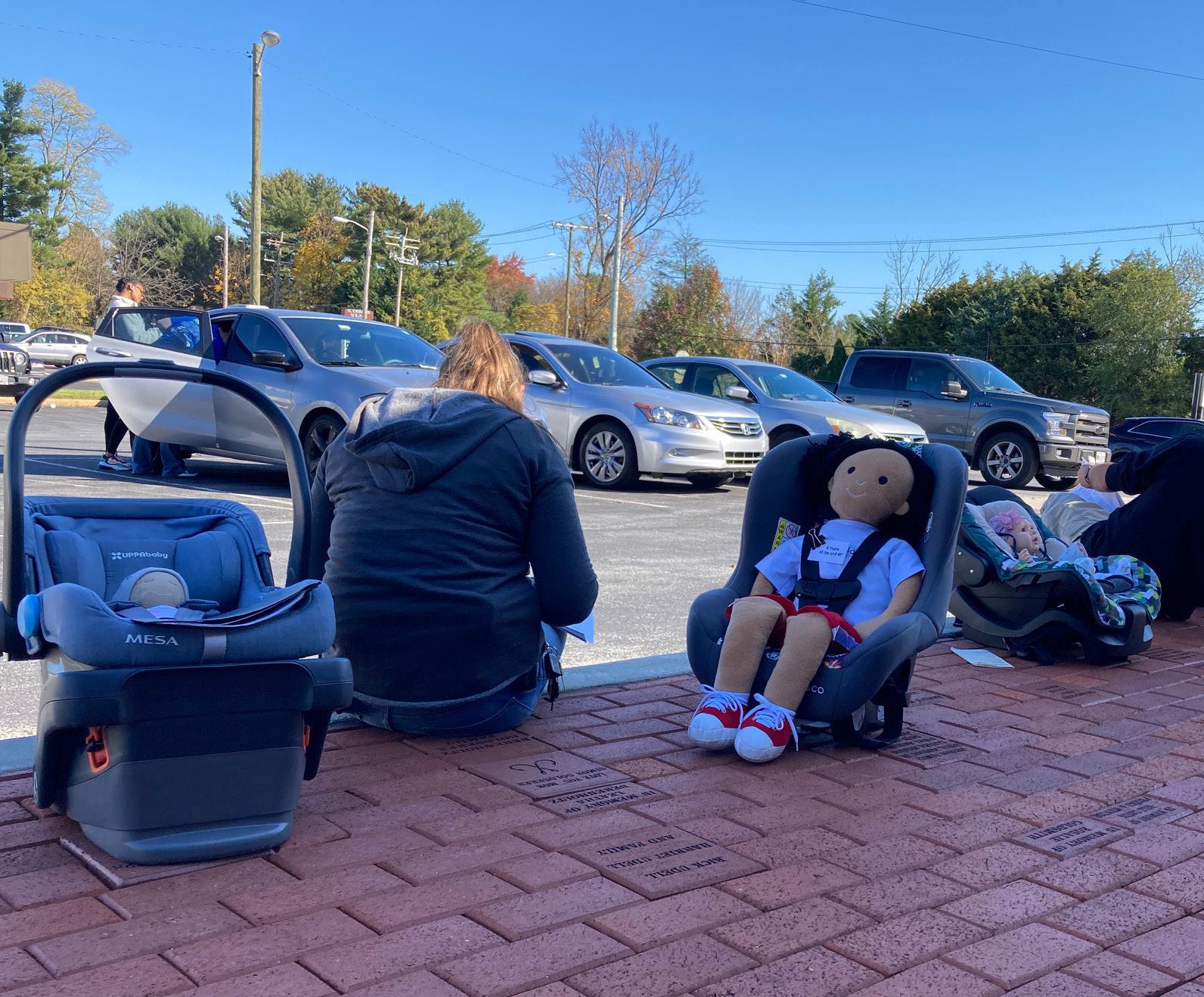
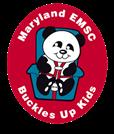
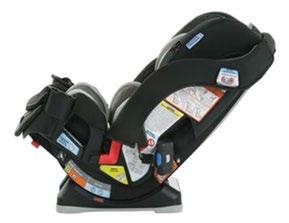
MIEMSS’ Child Passenger Safety Healthcare Project STILL has a few Graco Slimfit all-in-one car seats available for use in a supervisor’s vehicle for transporting children who do not require ambulance transport. If your volunteer EMS company is interested, contact Susanne Ogaitis-Jones, at cps@miemss.org as soon as possible.
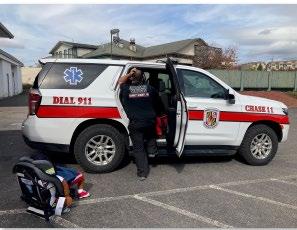
The project is funded from the Maryland Motor Vehicle Administration’s Highway Safety Office to MIEMSS’ EMS for Children program.
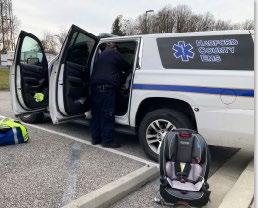
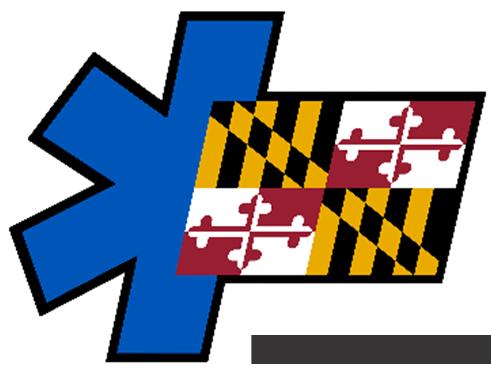
Each year, the Maryland Institute for Emergency Medical Services Systems (MIEMSS) celebrates EMS Week by honoring men and women across Maryland who have contributed to the EMS system. The eight categories for awards relate to specific incidents occurring from January 1, 2024, through December 31, 2024 For further information, call 410-706-3994, or email awards@miemss.org.
MARYLAND STAR OF LIFE AWARD
This award may be given to an individual, multiple individuals, or teams on the same incident for an outstanding rescue under extreme circumstances by EMS personnel.
MARYLAND EMS CITIZEN AWARD
This award is intended for citizen rescuers who have demonstrated quick thinking, fast action, and heroism.
EMS CLINICIAN OF THE YEAR
This award recognizes a clinician who has made outstanding contributions in the past year to the continuous improvement of emergency medical services in Maryland (for example, in the areas of quality assurance, public or EMS education, prevention, delivery of EMS services, and new technology).
EMD CLINICIAN OF THE YEAR
This award is given for extraordinary efforts in assisting the public through dispatch in this vital portion of the Chain of Survival.
OUTSTANDING EMS PROGRAM
This award recognizes a program that offers an innovative approach to reducing death and disability. The program must be affiliated with an EMS system component, such as a hospital, educational facility, rescue squad, or EMS organization.
LEON W. HAYES AWARD FOR LIFETIME EXCELLENCE IN EMS
This award is given to an individual who has devoted a lifetime of dedication to excellence in patient care, compassion and respect for each patient, and commitment to continuous improvement of the Maryland EMS system through his/her professional and personal life.
MARYLAND EMS-CHILDREN (EMS-C) AWARD
This award is given to an adult or program that has demonstrated ongoing dedication and commitment to improving the care for children and for promoting Family-Centered Care in a Maryland EMS program or hospital.
MARYLAND EMS-GERIATRIC (EMS-G) AWARD
This award is given to an individual or program that has demonstrated ongoing dedication and commitment to improving the EMS care of the elderly in Maryland.
Nominations for 2025 Awards are DUE by FRIDAY, MARCH 28, 2025. Submit through the online link: https://app.smartsheet.com/b/form/8bbe19fab5914734a84acc67beff8a7f
The Maryland EMS for Children program is seeking nominations of children and youth in Maryland who have demonstrated The Right Care When It Counts. Actions taking place January 1, 2024, through December 31, 2024, are eligible for nomination.
We will be recognizing children and youth who acted so that others would receive "The Right Care When It Counts." Each nominee will receive a patch and certificate and be eligible for a state award at a ceremony during EMS Week 2025.
Children and youth who have met one or more of the following criteria are eligible for Right Care Awards:

1. Calls or texts emergency response by calling 9-1-1, 9-8-8, or Poison Control Center (1-800-222-1222} in an emergency.
2.Provides their or their family's emergency phone numbers, address, health history (allergies, medications( special needs} and contacts to the emergency dispatcher and/ or emergency responders.
3. Teaches others the importance of having a written emergency plan and practices this plan at home including a disaster preparedness plan.
4. Applies knowledge learned in a class or training, performs CPR and/or uses an AED during a sudden emergency in the community while not on duty as a first responder.
5. Implements a unique program in Community Risk Reduction that provides education in the community.

Nominations for 2024 are DUE by Friday, March 28, 2025
Scan the QR code or visit miemss.org/home/emsc/right-care for more information or nominations
Questions? Email FAN@miemss.org


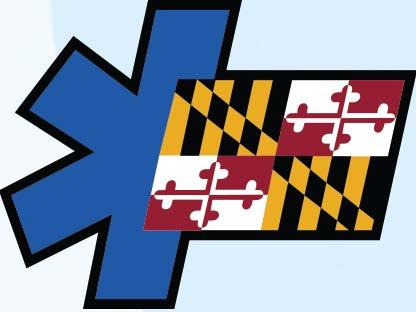
Maryland Department of Transportation Motor Vehicle Administration’s (MDOT MVA)
The MDOT MVA Highway Safety Office (MHSO) is dedicated to saving lives and working with many partners across the State to reduce the number of crashes each year. In addition, the MHSO looks for ways to reduce crash severity and ways to treat crash victims easier and faster.
Maryland aims to reduce the number of crashes, and the resulting deaths and injuries, to zero by 2030.
We are pleased to announce that registration is now open for the 2025 Maryland Highway Safety Summit, which will take place at the Hilton Baltimore BWI Hotel on Tuesday, April 29, 2025.
The summit brings together safety leaders and stakeholders from across Maryland to focus on the shared goal of eliminating traffic fatalities and serious injuries on Maryland’s roads by 2030. This event highlights Maryland's collaborative efforts, with participants from federal, state, and local agencies working together to improve road safety.
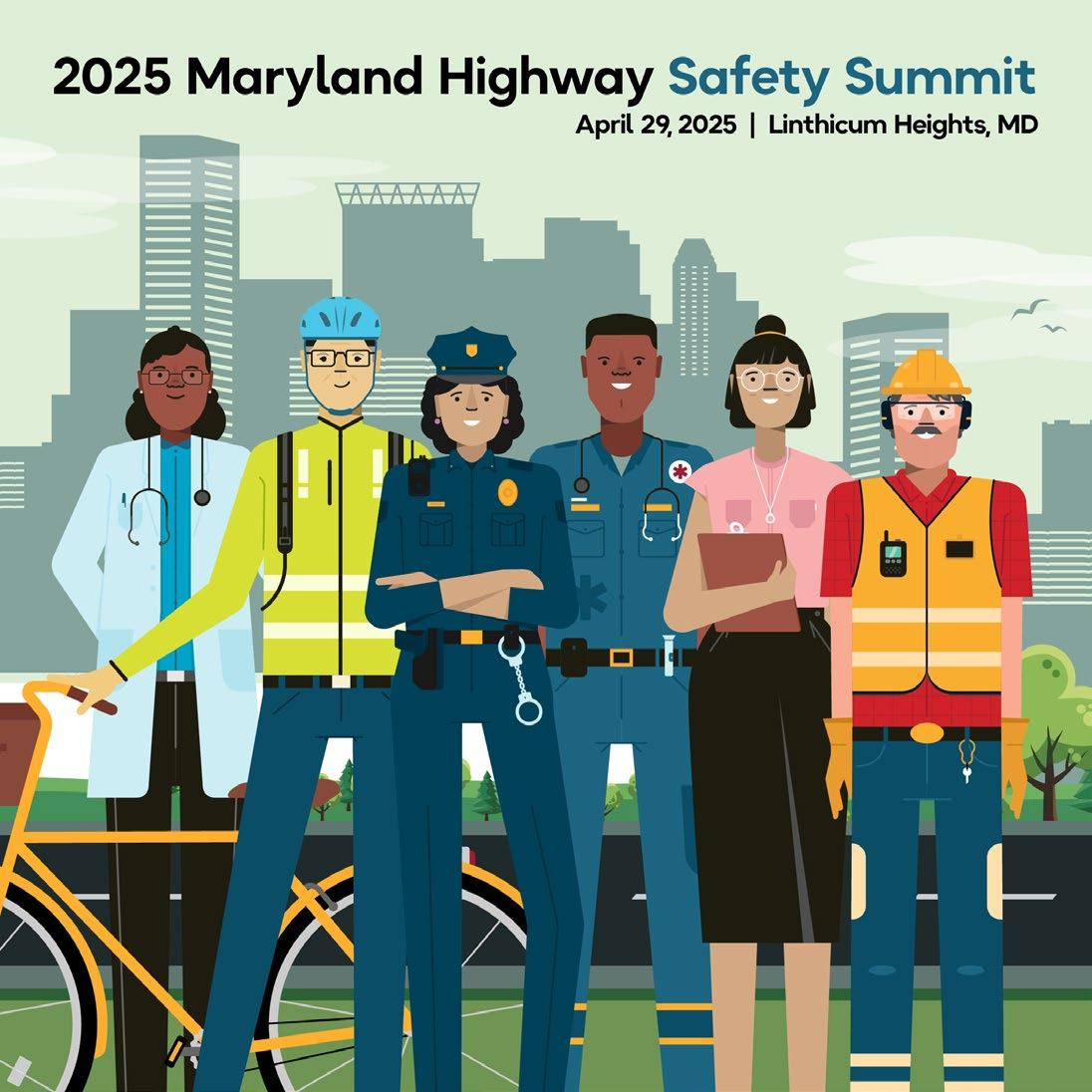
Additional information for the summit, including a draft agenda and registration information can be found at www.ZeroDeathsMD.gov/summit.
We look forward to seeing you in Baltimore for this year’s Summit!
As the days get longer and spring approaches, warmer weather means more people will be out and about, enjoying the sunshine. Expect to see more pedestrians, cyclists, and motorcyclists on the roads. It's a good time to refresh your focus and help everyone stay safe.
Here are a few reminders:
• Watch for pedestrians at crosswalks and intersections.
• Look twice for motorcycles—they can be hard to spot.
• Give at least three feet of space when passing cyclists, and only pass when it's safe.
Drivers, please slow down, stay alert, and stay distraction-free to ensure everyone reaches their destination safely. For more tips, visit www.ZeroDeathsMD.gov
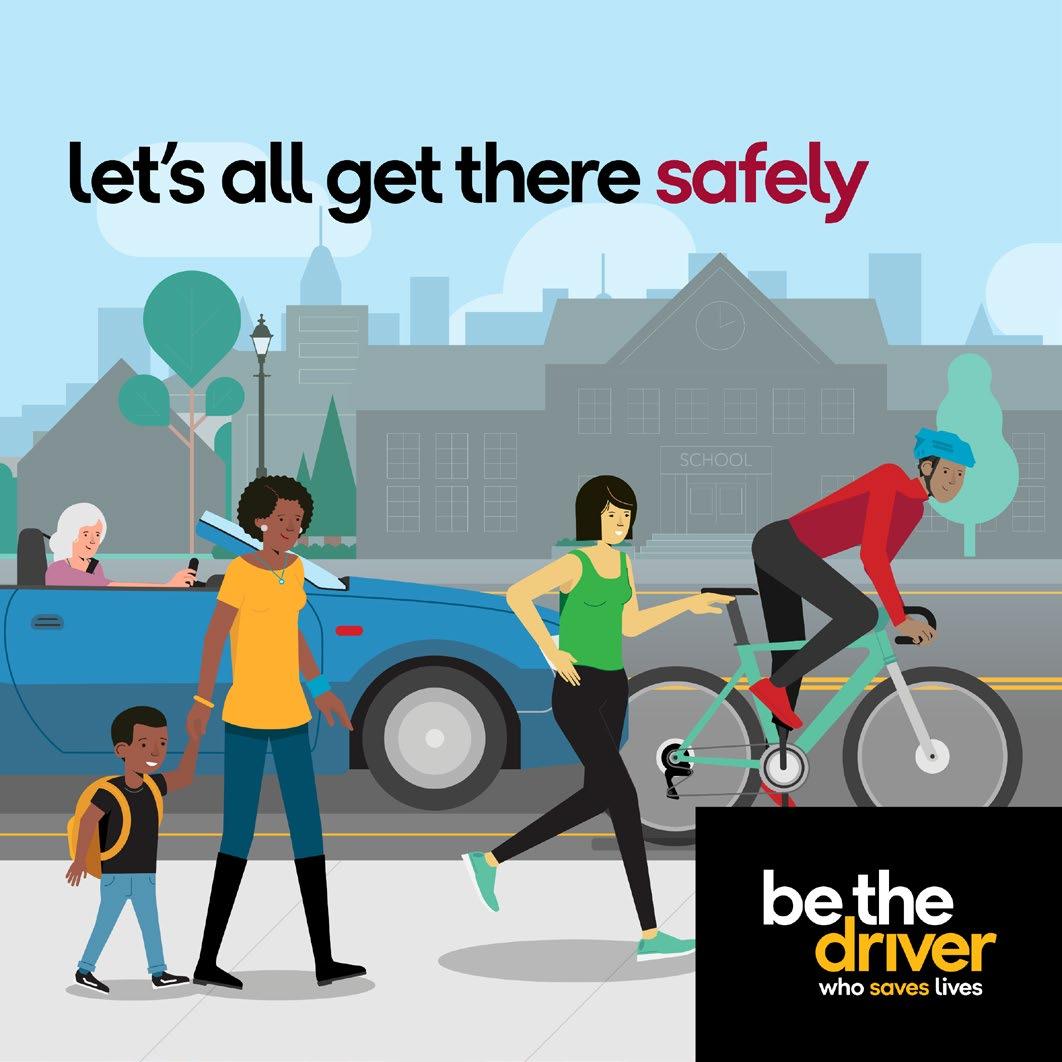
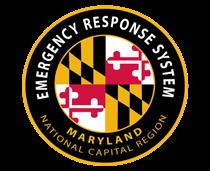
Maryland-National Capital Region Emergency Response System
In October and December 2024, the Maryland-National Capital Region Emergency Response System (MDERS) facilitated two tabletop exercises (TTXs) at different Adventist HealthCare (AHC) facilities with stakeholders from AHC, the Montgomery County Fire and Rescue Services (MCFRS), and the Montgomery County Police Department (MCPD). Each exercise focused on the initial actions of staff at each respective Adventist HealthCare facility and first responders during a critical incident involving an active assailant. The exercises aimed to examine AHC policies and procedures and bolster their response capabilities. Across both exercises, 35 participants were selected by their respective agencies’ leadership based on their probability of responding to an active assailant event.
For these exercises, a workgroup was formed that was comprised of subject matter experts (SMEs) from AHC, MCFRS, MCPD, and MDERS. To test AHC’s response capabilities, participating agencies determined that a discussion-based TTX would be the best approach. MDERS’s approach to TTXs is a systematic, scalable, and economical approach for developing and enhancing critical capabilities that foster interdisciplinary and interjurisdictional collaboration and coordination. The workgroup utilized agency plans, policies, and procedures as well as their background knowledge and experience to develop a scenario that tested the participants’ ability to respond to an active assailant incident at each medical facility

[Photo: MDERS]
based upon agreed objectives. The objectives were developed based on the capabilities that AHC wanted to test, such as operational communications and operational coordination.
During the exercise's development, a master scenario events list (MSEL) was created to supply realistic injects into the evolving threat. These were accompanied by expected actions from each agency to allow evaluators to review and examine the actions taken by participants. A list of discussion questions was also developed that targeted each objective.
The first exercise was held in October 2024 at AHC Shady Grove Medical Center (SGMC) and involved the Adventist HealthCare Rehabilitation Hospital, which is located in the SGMC complex. The second exercise was held in December 2024 at AHC White Oak Medical Center. Each exercise was scheduled for three hours,
during which participants worked through the scenarios and discussed the actions and priorities of their agencies during the scenario.
After the conclusion of exercise play at each exercise, a hotwash was performed with all participants, evaluators, and observers. This forum allowed MDERS to capture immediate feedback related to the exercise and facilitate discussions related to agency actions. Lastly, an anonymous evaluation form was sent with additional questions that sought additional input about the design and execution of each TTX.
Each exercise allowed participants to have open conversations about critical issues such as the ability of the hospital to maintain operations during and after a critical incident, how internal notifications are structured and disseminated to staff,
See MDERS page 12
(Continued from page 1)
Currently, local education agencies are reimbursed for mental health services only when provided to students enrolled in Medicaid with an approved IEP or IFSP. Under the new plan, all students enrolled in Medicaid will have access to these vital services. School psychologists who are licensed by the Maryland State Department of Education (MDE) and clinical social workers who are licensed by MDH will deliver these services.
The initiative is bolstered by a three-year, $2.5 million cooperative agreement from the Centers for Medicare & Medicaid Services (CMS) awarded to Maryland and 17 other states to expand access to behavioral health services in schools. MDH is collaborating with MDE and a statewide coalition of representatives from various state health agencies,
Maryland EMS News
MIEMSS
653 W. Pratt St. Baltimore, MD 21201-1536
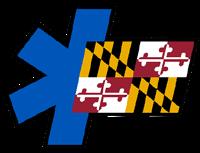
Governor Wes Moore Lt. Governor Aruna Miller
Copyright © 2025 by the Maryland Institute for Emergency Medical Services Systems
653 W. Pratt St. Baltimore, MD 21201-1536 www.miemss.org
Chairman, EMS Board: Clay B. Stamp, NRP
Executive Director, MIEMSS: Theodore R. Delbridge, MD, MPH
Managing Editor: Patrick Tandy (ptandy@miemss.org)
Design & Layout: Patrick Tandy
Photography: MIEMSS Media Services
(unless noted otherwise)
the Maryland Community Health Resources Commission, and local jurisdictions to roll out these expanded services.
“When we expand access to mental health services, we strengthen the depth of support available to students,” said State Superintendent of Schools Dr. Carey M. Wright. “Socialemotional wellness is directly tied to
(Continued from page 11)
and how responding agencies would integrate their operations and form a unified command (UC). The AfterAction Reports (AARs) that were developed for each exercise will provide guidance to AHC for the improvement of their policies and procedures.
MDERS remains committed to providing ongoing exercise support to
academic success. We appreciate our partnership with the Maryland Department of Health on this important initiative.”
For more about Medicaid schoolbased services, visit https://www. medicaid.gov/resources-for-states/ medicaid-state-technical-assistance/ medicaid-and-school-based-services/ index.html. n
(Continued from page 3)
n Altered mental status (confusion, agitation).
n Trouble breathing.
Call the Poison Center right away if a child has consumed cannabis. Do not wait for symptoms to call.
If you or someone you know is experiencing unwanted or unexpected effects from cannabis, call the poison experts right away at 1-800-222-1222.
If possible, bring the product packaging when seeking medical care to help healthcare providers determine appropriate treatment.
our Montgomery and Prince George’s County healthcare stakeholders. These exercises are tailored to bolster response capabilities, fortify our communities' resilience, and allow for improvement through the AAR process. Through these ongoing efforts, our goal is to ensure readiness and efficiency in handling emergencies while safeguarding the well-being of our residents. n
To reduce the risk of unintentional cannabis exposure:
n Store cannabis products up, away, and out of sight of children.
n Use a lockbox, locked cabinet, or other secure storage to prevent access, if possible.
By following these precautions, we can help prevent accidental exposures.
For more information or immediate assistance, contact the Maryland Poison Center at 1-800-222-1222 Educational materials for the public are available at mdpoison.com. n